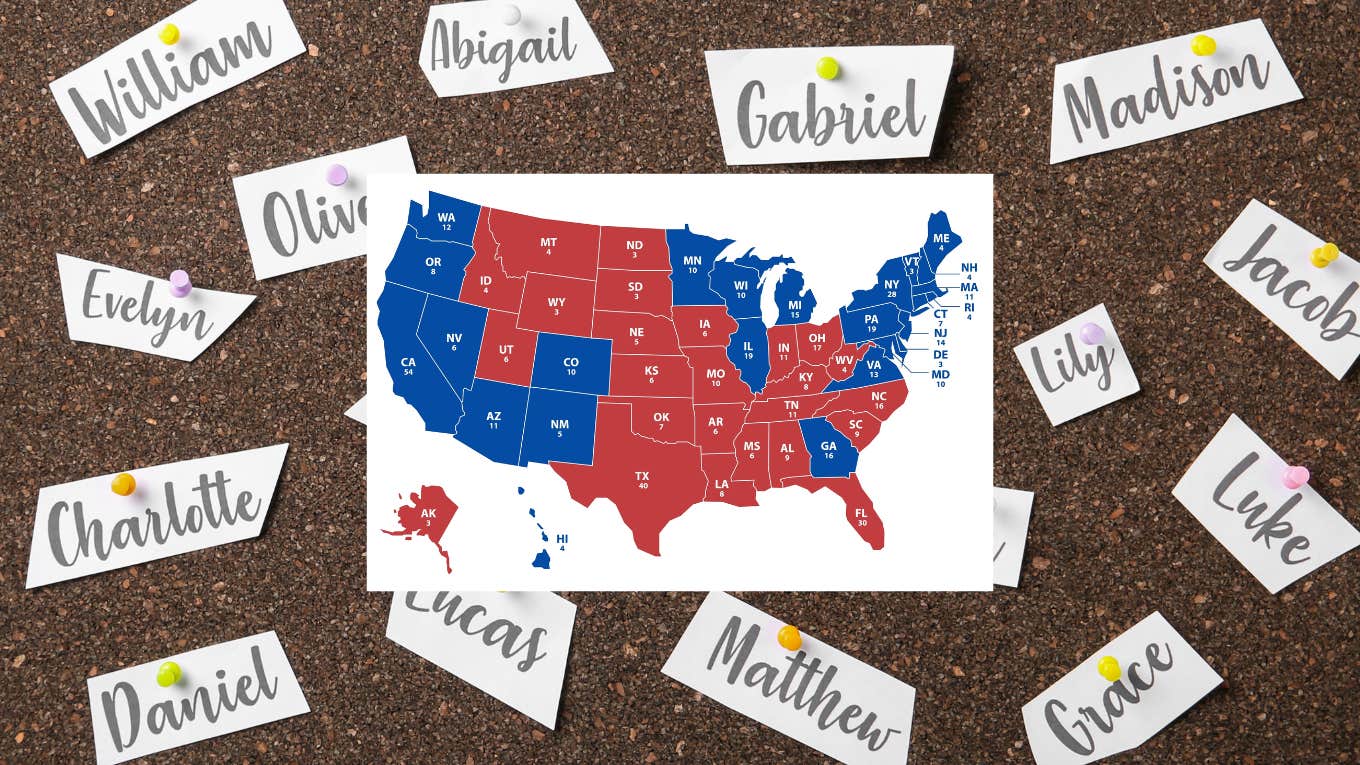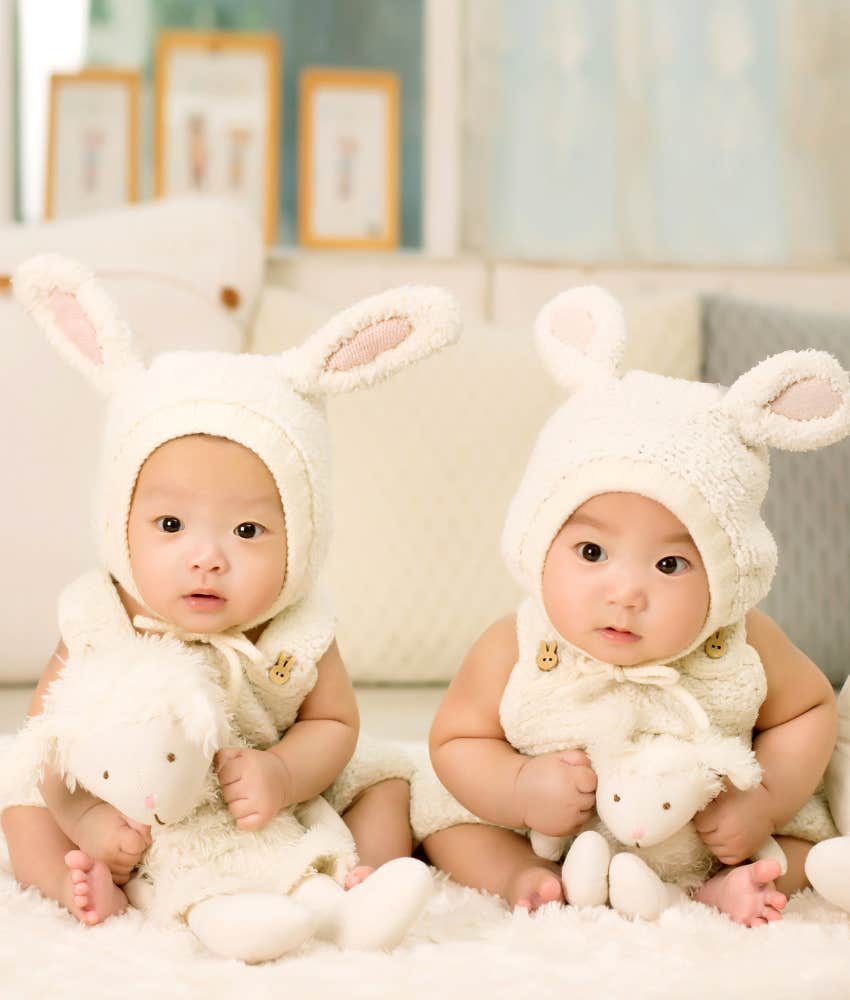Study Shows That Parents In Red & Blue States Name Their Babies Completely Differently, With Some Surprising Results
Politics isn't the only thing people think differently about in different states.
 Africa images | Canva Pro | Golden Sikorka | Shutterstock
Africa images | Canva Pro | Golden Sikorka | Shutterstock Naming a baby used to be a pretty straightforward affair. For the most part, you either chose a family name or picked one of the popular names of the time. Then off your kid went to school one day with a dozen other Jessicas and Jasons (or Lindas and Keiths, depending on how far back we're going).
But nowadays, naming a baby has become like so many other things in the social media era — an extension of ourselves, including our politics.
A new study by baby-naming website Nameberry shows just how deep this link between self-expression and baby-naming really goes.
The study shows that parents in red and blue states name babies very differently.
It turns out there's a lot more to the red-state/blue-state divide than just conservative or liberal political views.
Presumably using data from the Social Security Administration, which tracks baby names, Nameberry took a list of the top 500 baby names in recent years and analyzed whether they were chosen most often in states that voted for Trump or Biden in the 2020 presidential election.
Some of their findings actually buck what most of us might expect from these respective regions while also reflecting the wider divisions that exist in our country between liberals and conservatives.
Blue-state parents tend to favor more classic names and ones that honor cultural heritage.
Blue states and the political liberalism that characterizes them are typically known for being more open and forward-thinking. It's literally right there in the term "progressive," after all. But this isn't entirely reflected in the ways blue state parents tend to name their babies, according to Nameberry's findings.
Khim and her team found that classic, and in some cases even old-fashioned, girl names like Fiona, Mira, Paige, and Kayla were disproportionately popular in blue states. For boys, liberals love names like Aidan and Kieran.
 1035352 | Canva Pro
1035352 | Canva Pro
Blue state parents also like multicultural names like Miriam, Aisha, Santino, Ali, and Ibrahim — names that come from languages other than English. Nameberry found that 84% of the popular blue-state names derive from another language.
That's not exactly surprising, given the focus on cultural diversity among liberals and the diverse demographics of most blue states. But what is unexpected is the way these names are also bound in both religious and ethnic heritage — subjects that the right-wing has become… well, fairly obsessed with in recent years.
Prioritizing tradition, religion, and heritage are things you'd more readily expect conservatives in red states to embrace when looking for a name for their heirs. But it turns out parents in conservative areas are taking a much more outside-the-box approach to baby naming.
Rather than embracing tradition, red-state parents are all about unique, new, and inventive names.
The very definition of conservatism is wanting to "conserve" the old, tried-and-true ways of doing things, and accordingly, Nameberry found that names referencing things like nature and cowboy culture were quite popular in red states.
But the unexpected results pretty much end there. Because while preserving tradition might underpin red-state parents' voting habits, it absolutely does not apply to the way they name their kids.
You know all those memes and jokes about conservative "mamas" giving their kids bizarrely spelled names? The ones that have become such a well-known stereotype that there's even a mocking subReddit called "r/tragedeigh," in reference to all the "eigh" spellings these moms seem to prefer?
Well, it turns out those stereotypes are based in truth. Not only did Namberry find three different spellings of Oakley — including Oaklee and, yes, Oakleigh — among the top names in red states, but uncommon, outside-the-box names with creative spellings, as well as surnames as first names, are pretty much the default across the board in conservative areas.
Even more surprising is red-state parents' love of gender-neutral names — which accounted for 70% of the most popular red-state baby names. Pretty shocking for areas of the country where traditional gender norms have become not just philosophical but legislative articles of faith.
All these unexpected findings seem to hint at two completely contrasting truths: Liberals and conservatives are as different and divided as we've all come to recognize, but we all contain multitudes, too.
At least when it comes to baby names, the most progressive among us hold tradition and heritage dear, and the most conservative among us also like to think outside the box.
Perhaps one day, all these Aidans and Oakleighs will find a way to bridge the other gaps between us.
John Sundholm is a news and entertainment writer who covers pop culture, social justice, and human interest topics.

